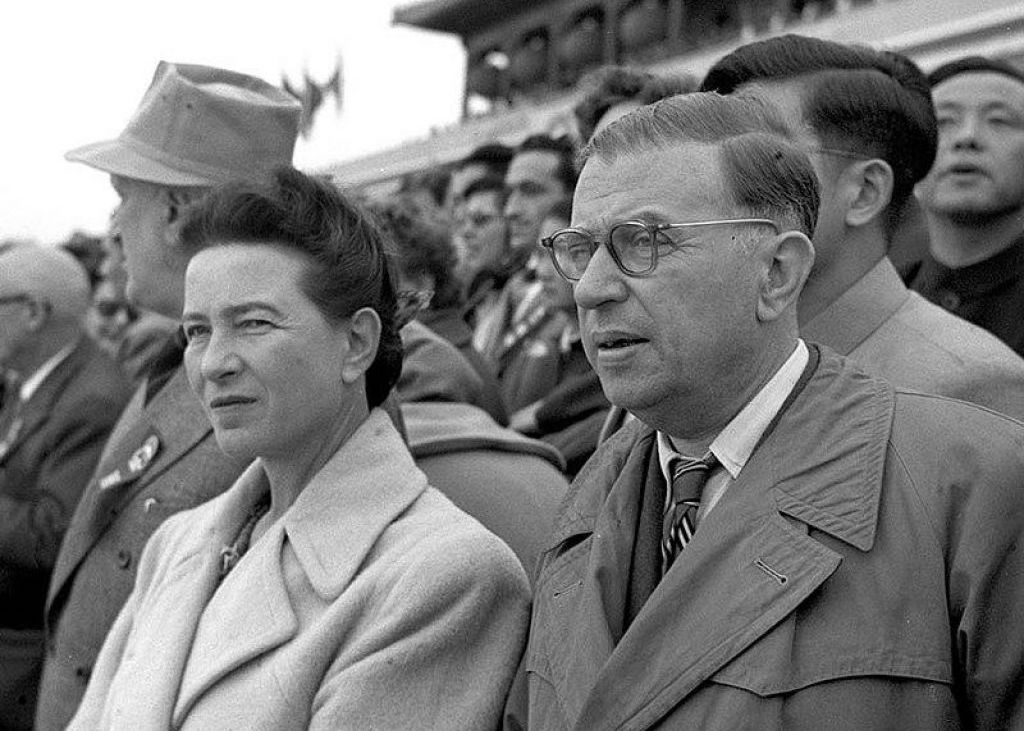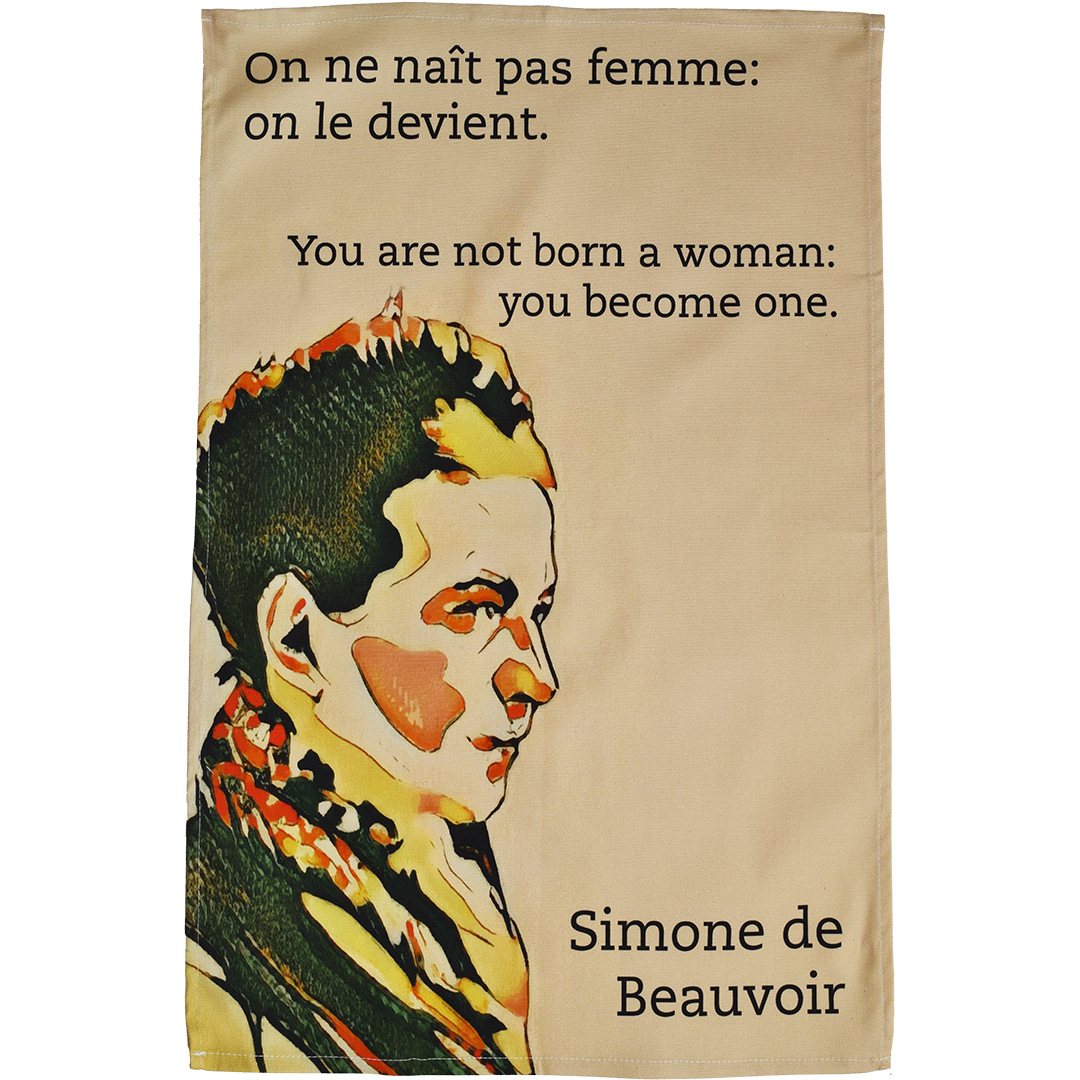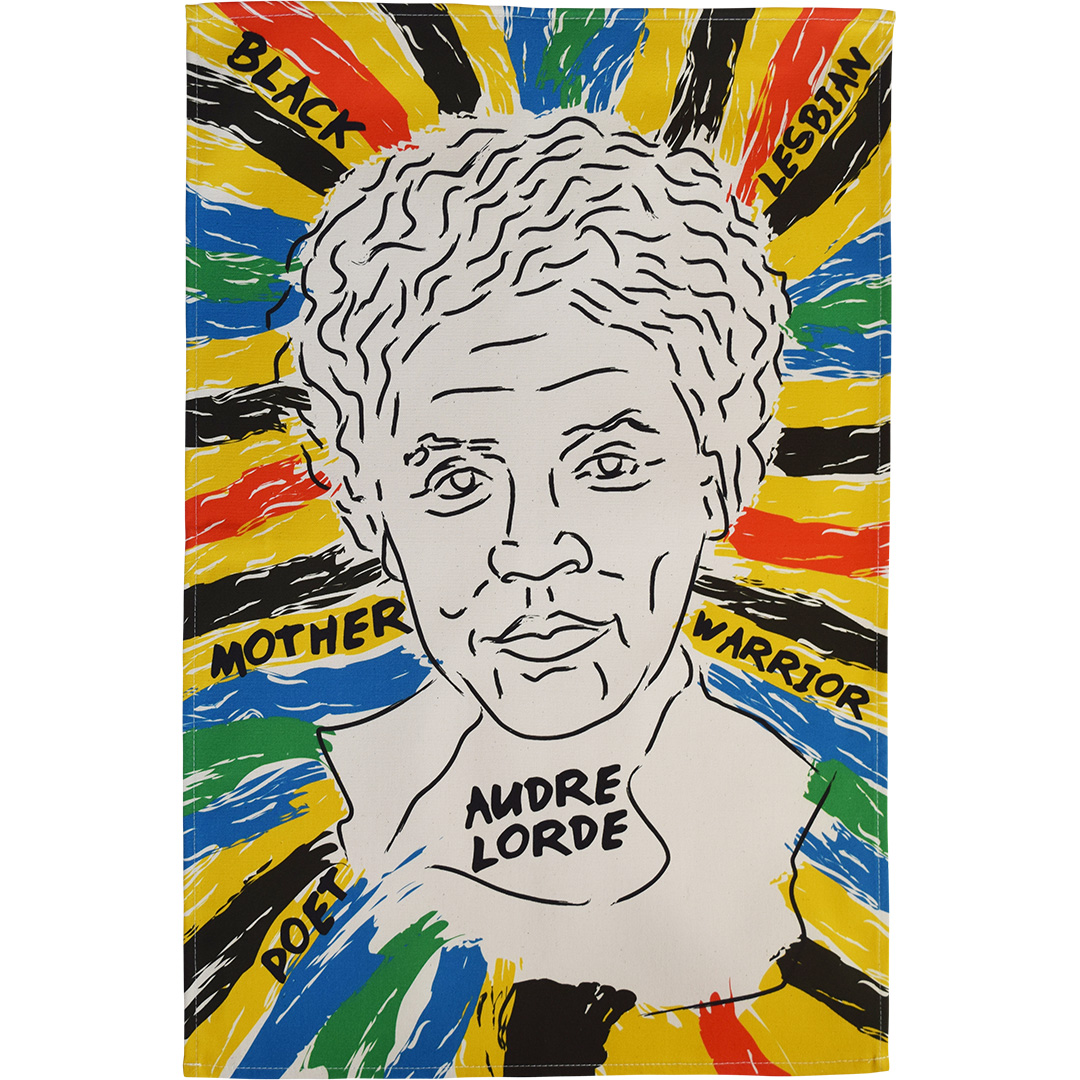We use cookies to make your shopping experience better. By using our website, you're agreeing to the collection of data as described in our Privacy Policy.
By Means of Love: The Life and Work of Simone de Beauvoir

Born on this day in 1908, Simone de Beauvoir was one of the great thinkers of the twentieth century
“One’s life has value so long as one attributes value to the life of others, by means of love, friendship, indignation, compassion.”
Simone de Beauvoir was many things.
A philosopher, author and activist. An existentialist, Marxist, and feminist - Beauvoir's contribution to modern thought is almost unrivalled.
A leading figure of the post-war culture of rebellion in France, Beauvoir was thoroughly mixed up in the political agitation of that era.
Paris in 1968, Third World anti-colonialism, women’s liberation – Beauvoir was there for all of it.
Simone de Beauvoir's The Second Sex remains one of the foundational texts of feminist philosophy
Click to view our Simone de Beauvoir tea towel
Born in Paris to a firmly bourgeois French family, Beauvoir was immersed in art and culture from a young age.
She had a towering intellect and excelled academically. Her father famously remarked that “Simone thinks like a man!”
During the interwar decades, Beauvoir studied philosophy at the Sorbonne. She then set out on a teaching career which continued until she was able to support herself through writing.
Camus met and befriended Beauvoir during World War Two and the Nazi occupation of Paris
Click to view our Albert Camus tea towel
Beauvoir’s philosophy developed out of a number of overlapping traditions – which is partly what makes her such an important figure of twentieth century philosophy.
Along with the likes of Albert Camus and her long-time partner, Jean-Paul Sartre, Beauvoir was a leading figure in French existentialism.
Also like Sartre, Beauvoir identified as a Marxist, albeit with a critical posture toward orthodox Marxism in mid-century France.
But two major traditions were not enough. Beauvoir’s most famous work, The Second Sex (1949), is a treasured text of the feminist canon too.
In fact, what makes Beauvoir’s work unique is how she applied existentialist philosophy to the question of women’s liberation, bringing together these two strands of her thinking.
Turning the existentialist mantra existence precedes essence into a feminist one – ‘You are not born a woman: you become one’ – Beauvoir was one of the first people to articulate the now-common distinction between biological sex and socially-constructed gender.
Beauvoir's work went on to influence several major feminist figures, from Audre Lorde to Judith Butler
Click to view our Audre Lorde tea towel
But Beauvoir wasn’t just a thinker. She was a doer, too.
Common to all of Beauvoir’s influences was the belief that philosophy ought to engage with the world, not just contemplate it.
As Karl Marx had written:
“The philosophers have hitherto only interpreted the world in various ways. The point, however, is to change it.”
Beauvoir’s life was marked by such a will to change and engage with the world around her.
During World War Two, she lived under Nazi occupation in Paris. There, with Sartre, Camus, and others, she directed the French Resistance newspaper, Combat.
After the war, Beauvoir was an active supporter of anticolonial revolution in the Third World, particularly Che Guevara and the Cuban Revolution of 1959.
Closer to home, she risked ignominy and violence in France by supporting the Algerian war of independence against the French empire.
In the 1960s and 1970s, Beauvoir also became active in the women’s liberation movement in France and the wider world. In 1971, she wrote and signed the ‘Manifesto of the 343’, in support of women’s right to choose.
Beauvoir’s The Second Sex was a guiding text of second wave feminism in the West, only growing in influence as the years went by.
“Man is defined as a human being and woman as a female – whenever she behaves as a human being she is said to imitate the male.”
Beauvoir argued that, in addition to legal equality and material independence, women’s liberation requires that the myth of “the woman” be overthrown.
Liberation means women and men mutually recognising each other as both different and free.
Marxist, feminist, anti-fascist, critic of empire – Simone de Beauvoir had many causes, and many causes had the benefit of Simone de Beauvoir.






